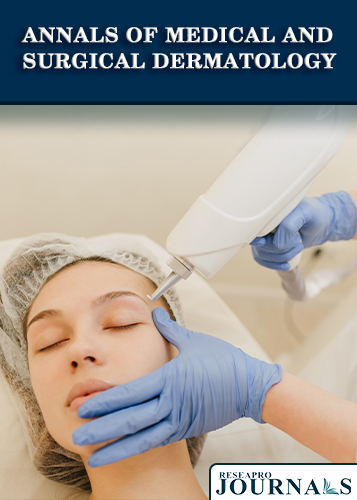
Annals of Medical and Surgical Dermatology
OPEN ACCESS

OPEN ACCESS

Department of Dermatology and Cutaneous Surgery, University of Miami Miller School of Medicine, USA.
The human skin hosts a diverse array of microorganisms, collectively referred to as the skin microbiome. This complex ecosystem, composed primarily of bacteria, fungi, and viruses, plays a crucial role in maintaining skin health by modulating immune responses, protecting against pathogenic invasion, and contributing to the integrity of the skin barrier. Recent advancements in metagenomic sequencing and microbial profiling have shed light on the dynamic interactions between host skin and its resident microbiota, revealing significant implications for both health and disease.
Alterations in the composition or function of the skin microbiome, referred to as dysbiosis, have been increasingly associated with various dermatological conditions, including acne vulgaris, atopic dermatitis, psoriasis, and rosacea. These findings suggest that microbial imbalance may not only reflect but also actively drive inflammatory and immune-mediated skin disorders. Gaining insight into these interactions presents promising opportunities for developing new therapeutic approaches.
New therapeutic strategies focused on restoring microbial balance involve the application of topical probiotics, prebiotics, postbiotics, and microbiome transplantation. Such approaches are designed to enhance beneficial microbial populations, suppress pathogenic strains, and support skin homeostasis with minimal side effects compared to conventional therapies. Furthermore, personalized dermatological treatments based on individual microbiome profiles represent a promising avenue for future clinical practice.
Despite growing enthusiasm, significant challenges remain, including the standardization of sampling techniques, interpretation of metagenomic data, and regulatory frameworks governing live microbial products. Nonetheless, the integration of microbiome science into dermatology holds great potential to revolutionize the management of chronic skin diseases.
Department of Dermatology and Cutaneous Surgery, University of Miami Miller School of Medicine, USA.